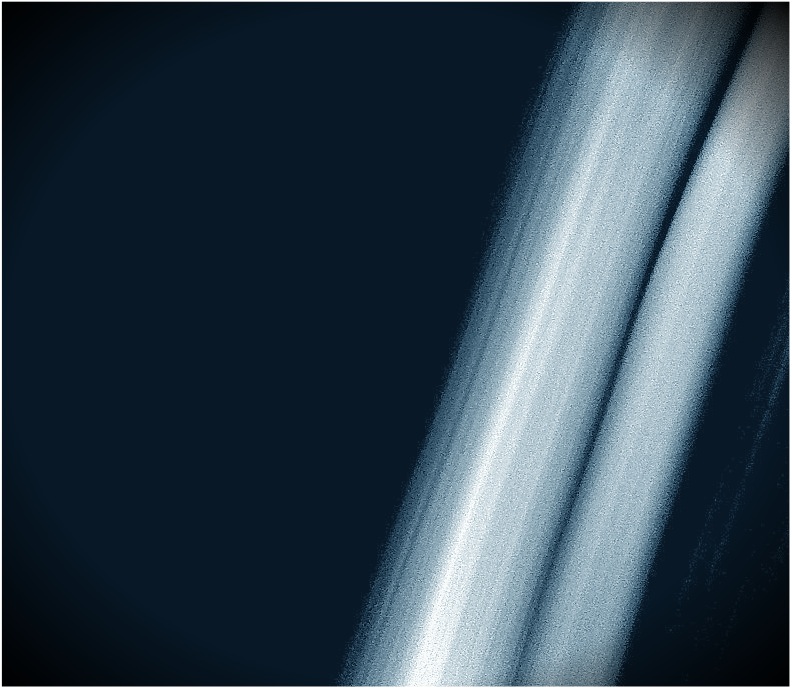Gap Dream is trying really hard to be the East Coast’s answer to some of the hazier garage/surf pop that been spilling out from the West Coast over the last few years. Except that Gap Dream is from Cleveland, Ohio–some 500 miles from the closest East Coast beach. So let’s call them Lake Erie’s answer to West Coast surf pop.
We might as well go ahead and toss around the “Nuggets-y” label too because we’re going to be getting to that sooner or later. This self-titled debut, culled together from songs that Gap Dream architect Gabe Fulvimar sent in to Burger Records piecemeal over the course of a few months back in 2011, splices together elements of ’60s and ’70s psych-pop and garage rock and twists them into a kind of Black Keys-meets-The Ventures concoction that relies as much on the carefree attitude of its ’60s forebears as it does on the garage rock revivalism that has taken place in the last decade. This makes even more sense when you learn that Fulvimar first cut his teeth playing on the debut by The Black Keys and that he’s good friends with Keys drummer Pat Carney. It should go without saying that his musical influences are going to play a large role here.
And while Fulvimar does stay mostly faithful to his influences across these ten tracks, you also get a sense that he loves pushing the boundaries of how this kind of carefully crafted garage rock can sound. It’s nothing so jarring as to pull you out of the song, but it’s noticeable in a way that calls attention to his desire to get all the small details just right. Whether it’s the ’60s bubblegum spike of “Go Ahead” or the cosmic guitar lines and The Band-esque organ on “My Other Man,” the album revels in its ability to successfully incorporate those little touches that we’ve come to recognize as staples of their respective genres and bands. The album is nothing if not reverential towards those artists from which Fulvimar clearly draws inspiration. We could list off a dozen or more artists that fit this description but it would be simpler if you just went and bought the mid-’60s encompassing psych-pop/rock Nuggets compilation and listened to any song from it.
Other tracks like “Feast of the First Morning” and “Heart” could well have been acid-induced Chocolate Watchband songs had they been released back in ’68 as strangely appropriate companions to their seminal garage rock song “I’m Not Like Everybody Else.” There are specific marks that the album hits here in regards to its obsession with the ideals of ’60s and ’70s underground garage rock, such as vocals that are just slightly lower in the mix than they should be, guitars that sound vaguely out of tune, and enough reverb and echo to fill the Grand Canyon. These marks are spot-on authentic though.
While this is ostensibly a rock record, it takes welcome detours from time to time that break up the sometimes routine structure of the album. Fulvimar casually slips in some random swirling electronics on “Leather” but they feel less like casual filler and more like the initial steps of a conscious musical experiment to see how far he can push the song before it breaks under the strain. The deeply resonant throbbing that opens the album’s closing track “Slave” gives way to deeply echoing vocals and a guitar whose nerves seem to on the verge of snapping. There is an almost tangible sense of anxiety that spreads itself across the song, which displays a level of structural complexity and maturity that we’ve haven’t heard up to that point on the album.
What most people will see as the album’s main weakness however, is the same thing that others will praise it for–its slavish devotion to its own aesthetic. Your enjoyment of the record is going to depend on your knowledge and tolerance for an album so seemingly indebted to its influences that it can sometimes be difficult to see where the band ends and its influences begin. Buts that’s really just surface noise. If you look past the obvious ways in which the album is similar to its predecessors and contemporaries, you begin to see how subtly Fulvimar has maneuvered his own musical identity among those of his heroes. And what once appeared to be an album that was just a showcase for his knowledge of ’60s and ’70s musical history begins to take on the shape of an album which uses his own influences to focus attention and highlight his own singular musical viewpoint. It’s a clever bit of role reversal for the listener that only becomes apparent after a few listens.
As much as it might seem otherwise, given its atypical production (i.e. the months long back and forth between the label and Fulvimar), this album never feels musically disjointed or suffers from a lack of creative direction. He clearly has a deep-seated love and respect for his influences and doesn’t merely appropriate them interstitially to fill out his own sound. In that respect, he has a better sense of where Gap Dream falls sonically than many of his peers, as some rely so heavily on their influences that almost all trace of individuality is subverted. This record feels similar in spirit to other notable garage rock records released this year such as Slaughterhouse by Ty Segall Band and Celebration Rock by Japandroids, though not quite on the same accomplished level as those albums and definitely not as insistent or aggressive. To be honest though, the more subdued, though still densely constructed, pop/rock haze that Gap Dream inhabit seems to suit Fulvimar just fine.

